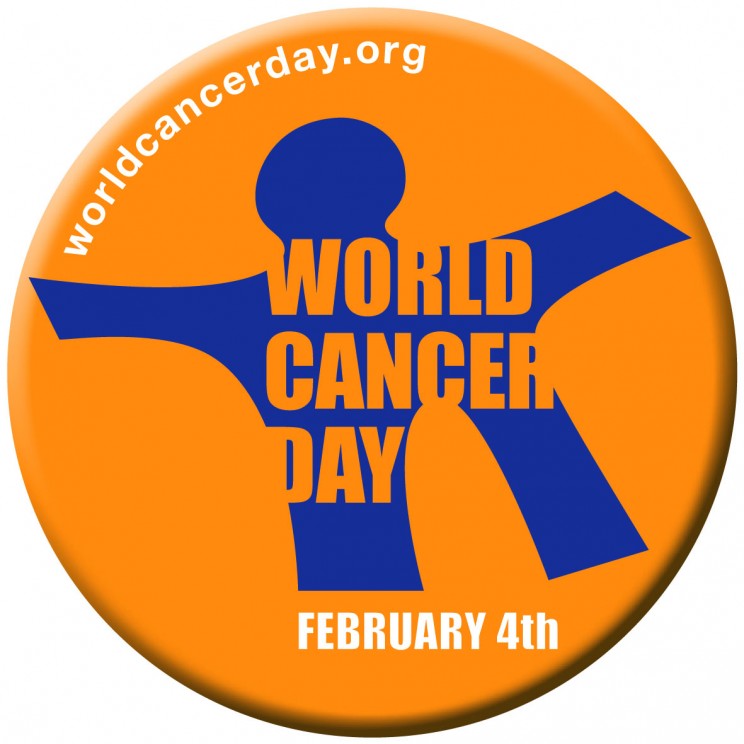In the 21st century, “show-me-the-bodies” seems a cruel and outdated foundation for public policy. Yet history is littered with examples—like tobacco and asbestos—where only after the death toll mounts is the price of inaction finally understood to exceed that of action.
The post Show me the bodies: A monumental public policy failure appeared first on OUPblog.
By Katherine M. Venables
Occupational epidemiology is one of those fascinating areas which spans important areas of human life: health, disease, work, law, public policy, the economy. Work is fundamental to any society and the importance society attaches to the health of its workers varies over time and between countries. Because of the lessons to be learned by looking at other countries as well as one’s own, occupational epidemiology is a truly global discipline. Emerging economies often prioritize productivity over other issues, but also can learn from the long history of improvement in working conditions which has taken place in developed countries. Looking the other way, the West can learn from fresh insights gained in studies set in low and middle-income countries.
Exposures are usually higher in emerging economies and epidemiological methods are an important tool in detecting and quantifying outbreaks of occupational disease which may have been controlled in the West. A recent study of digestive cancer in a Chinese asbestos mining and milling cohort provides additional evidence that stomach cancer may be associated with high levels of exposure to chrostile asbestos, for example. This was a collaborative study between researchers in China, Hong Kong, Japan, and the United States, and illustrates the way that studying an “old” disease in a new context can provide results which are of global benefit.
Issues in occupational epidemiology are never static. Work exposures change along with materials and processes. The ubiquitous printing industry, for example, is always developing new inks, cleaning agents, and processes. A cluster of cases of the rare liver cancer, cholangiocarcinoma, was noted in Japanese printers and this finding was replicated in the Nordic printing industry by using one of the large Nordic population-based databases. This replication is important because it shows that the association is unlikely to be due to a lifestyle factor specific to Japan.
 “Big data” sharpens statistical power and there are now specific data pooling projects in occupational epidemiology, to supplement the use of existing large databases. The SYNERGY study, for example, pools lung cancer case-control studies with the aim of teasing out occupational effects from behind the masking effect of smoking, which remains by far the most important driver for lung cancer. A recent analysis with around 20,000 cases and controls was able to show that bakers are not at increased risk of lung cancer, whereas the many previous smaller studies had given inconsistent results.
“Big data” sharpens statistical power and there are now specific data pooling projects in occupational epidemiology, to supplement the use of existing large databases. The SYNERGY study, for example, pools lung cancer case-control studies with the aim of teasing out occupational effects from behind the masking effect of smoking, which remains by far the most important driver for lung cancer. A recent analysis with around 20,000 cases and controls was able to show that bakers are not at increased risk of lung cancer, whereas the many previous smaller studies had given inconsistent results.
The addition of systematic reviews to the toolkit has strengthened the evidence base in occupational epidemiology, allowing policy about occupational risks and their prevention to be made with confidence. Health economics, also, can be applied to findings from occupational epidemiology to clarify policy issues.
Development brings its own issues to which occupational epidemiology can be applied. We now live longer in the West, and we will have to work into old age, often while carrying chronic diseases. Despite frequently-expressed concerns about an ageing workforce, a recent study in an Australian smelter confirmed others in that the older workers maintained their ability to work safely and the highest injury rates were in young workers. Patients with previously fatal diseases survive into adult life and, potentially, the workforce; a survey of patients with cystic fibrosis, for example, found that disease severity was less important as a predictor of employment than social factors such as educational attainment and locality. A loss of heavy industry in the West, combined with cheap transport, means that many of us spend most of our waking hours sitting down, promoting obesity and its complications. A sample of UK office workers spent 65% of their work time sitting and did not compensate for this by being more active outside work. The economic downturn is a major political and social preoccupation, bringing uncertainty about future employment, which may fuel dysfunctional behaviour such as ‘presenteeism’. A Swedish study suggested that this may be associated with poor mental wellbeing.
Katherine M. Venables is a Reader in the Department of Public Health at the University of Oxford. Her research has always focused on aetiological epidemiology. At Oxford, she has worked on a cohort study of mortality and cancer incidence in military veterans exposed to low levels of chemical warfare agents, and also on the provision of occupational health services to university staff. She is editor of Current Topics in Occupational Epidemiology.
Subscribe to the OUPblog via email or RSS.
Subscribe to only science and medicine articles on the OUPblog via email or RSS.
Image: Woman smoking a cigarette by Oxfordian Kissuth. CC-BY-SA-3.0 via Wikimedia Commons.
The post Occupational epidemiology: a truly global discipline appeared first on OUPblog.

By Lauren Pecorino
There is a tendency to complain about policies when writing blogs, but I think it is time to commend the British campaigns and innovations in treatment. They have proven to be some of the best in the world and have had a major impact in the fight against cancer.
One of the best British campaigns is against cervical cancer. Getting personally posted invitations to attend your next PAP screening, supported by pamphlets of information, is something few women ignore. Those who try to ignore these invitations are rightly and relentlessly bombarded with regular reminders.
And, with the knowledge that a sexually transmitted virus, Human Papilloma Virus (HPV), is responsible for all cases of cervical cancer, the UK implemented a national school-based HPV vaccination programme that has proven to yield high uptake. By 2009, 70 percent of 12-13 year olds in the UK were fully vaccinated. These results are admirable compared to the results of alternative on-demand provisions offered by other countries including the USA. Note that the vaccine is recommended for early teens as it is a preventative vaccine and not a therapeutic vaccine, and must be administered before the initiation of sexual activity for it to be effective. The vaccine prevents about 70% of cervical cancers caused by two specific strains of HPV. PAP screening is still important to catch cases that are not prevented by the vaccine. An added bonus of this campaign is that the same vaccine also protects against some head, neck, and anal cancers caused by HPV infections.
Another great British effort is towards the prevention of lung cancer. The anti-smoking adverts have been haunting, especially the most recent one released by the UK Department of Health that shows a tumor growing on a cigarette. It is brilliant. I wish I had designed it. The advert strikingly conveys the message that if you saw the damage smoking causes, you would not smoke. The percentage of male cigarette smokers have fallen from 55% in 1970 to 21% in 2010 and a decreasing number of deaths due to lung cancer has followed this trend.
Click here to view the embedded video.
The UK is also a model of good practice in that it is the only country in the world which has a network of free ‘stop-smoking’ services, recently supported by specialized training for National Health Service Stop Smoking practitioners.
We can help the national campaign at a personal level by being more opinionated and outspoken when it comes to letting those around us know that smoking is harmful and “uncool”- especially among the young. We must ensure the message is passed down to new generations.
Finally, the UK is at the leading edge in using stem cells to help replace organs damaged by cancer. Tracheal transplants using tracheal scaffolds from cadavers seeded with the patient’s own stem cells have been used to replace damaged tissue for patients with tracheal cancer. Currently scientists at University College London are developing very similar procedures to grow a new nose for a patient who had lost their nose to cancer. These innovative approaches are the result of a continuously open, well-supported but regulated stem cell research policy, not yet seen in the USA.
Well done Great Britain!
 Lauren Pecorino received her PhD from the State University of New York at Stony Brook in Cell and Developmental Biology. She crossed the Atlantic to carry out a postdoctoral tenure at the Ludwig Institute for Cancer Research, London. She is a Principal Lecturer at the University of Greenwich where teaches Cancer Biology and Therapeutics. The teaching of this course motivated her to write The Molecular Biology of Cancer: Mechanisms, Targets, and Therapeutics, now in its second edition. Feedback on the textbook posted on Amazon from a cancer patient drove her to write a book on cancer for a wider audience: Why Millions Survive Cancer: the Successes of Science.
Lauren Pecorino received her PhD from the State University of New York at Stony Brook in Cell and Developmental Biology. She crossed the Atlantic to carry out a postdoctoral tenure at the Ludwig Institute for Cancer Research, London. She is a Principal Lecturer at the University of Greenwich where teaches Cancer Biology and Therapeutics. The teaching of this course motivated her to write The Molecular Biology of Cancer: Mechanisms, Targets, and Therapeutics, now in its second edition. Feedback on the textbook posted on Amazon from a cancer patient drove her to write a book on cancer for a wider audience: Why Millions Survive Cancer: the Successes of Science.
Read a World Cancer Day Q&A with Lauren Pecorino.
Subscribe to the OUPblog via email or RSS.
Subscribe to only health and medicine articles on the OUPblog via email or RSS.
The post World Cancer Day 2013: The Best of British appeared first on OUPblog.




 “Big data” sharpens statistical power and there are now specific data pooling projects in occupational epidemiology, to supplement the use of existing large databases. The SYNERGY study, for example, pools lung cancer case-control studies with the aim of teasing out occupational effects from behind the masking effect of smoking, which remains by far the most important driver for lung cancer. A recent analysis with around 20,000 cases and controls was able to show that bakers are not at increased risk of lung cancer, whereas the many previous smaller studies had given inconsistent results.
“Big data” sharpens statistical power and there are now specific data pooling projects in occupational epidemiology, to supplement the use of existing large databases. The SYNERGY study, for example, pools lung cancer case-control studies with the aim of teasing out occupational effects from behind the masking effect of smoking, which remains by far the most important driver for lung cancer. A recent analysis with around 20,000 cases and controls was able to show that bakers are not at increased risk of lung cancer, whereas the many previous smaller studies had given inconsistent results.